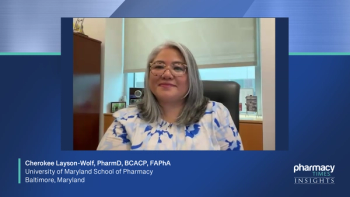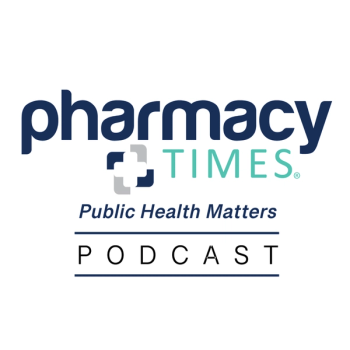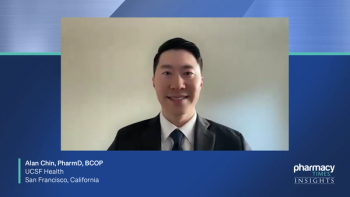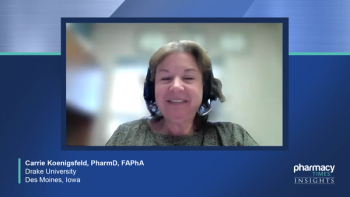
An expert on RSV vaccination provides insights on barriers that prevent the uptake of RSV vaccines and preventative measure in the pipeline for RSV.

An expert on RSV vaccination provides insights on barriers that prevent the uptake of RSV vaccines and preventative measure in the pipeline for RSV.

Kristian Hurley, senior vice president of Programs, Advocacy, and Health Equity at Beyond Type 1, discussed the importance of proactive screening for patients with signs of type 1 diabetes (T1D).

Medical professionals describe how pneumococcal disease manifests in adults, detailing its potentially lethal consequences such as sepsis or severe pneumonia, and explain how vaccination can effectively mitigate these serious health risks.

Medical experts outline the key indicators, symptoms, and transmission mechanisms of pneumococcal infections in adult populations.

Because T1D is not necessarily caused by genetics, educating patients about the signs and helping them get tested early is crucial.

Career ladders for pharmacy technicians not only support the staff themselves, but also the broader success of the health system.

Focusing on the preparation of RSV vaccines, Cherokee Layson-Wolf, PharmD, BCACP, FAPhA, provides detailed insights on the differences between the adjuvanted and nonadjuvanted vaccines.

Cherokee Layson-Wolf, PharmD, BCACP, FAPhA, outlines evidence-based measures that can be implemented to prevent or minimize the transmission of RSV.


Having the authority to prescribe nicotine replacement therapies does not mean that pharmacists are getting involved in these programs, so ongoing research is investigating how to create sustainable models with greater pharmacist involvement.

Tune into this episode of “Public Health Matters” to hear how Walmart is leveraging its network to provide HIV care and specialty pharmacy services and how integrating community pharmacy outreach is significant for patients.

Allison Burns discusses how pharmacists should prepare and educate themselves regarding OTC naloxone, and the steps that can be taken in stores and pharmacies to ensure OTC naloxone is visible and available.

An expert on RSV discusses symptoms that warrant emergent medical care and the overall impact of RSV on older adults or immunocompromised individuals.

Cherokee Layson-Wolf, PharmD, BCACP, FAPhA, provides an overview of respiratory syncytial virus (RSV), highlighting disease transmission, incidence, symptoms, and factors that indicate higher risk of hospitalization.

Allison Burns, president and CEO of EMO Health, discusses the price point and stigma surrounding OTC naloxone in an interview with Pharmacy Times.

Alan Chin, PharmD, BCOP, examines the PALOMA-3 trial's influence on the treatment of EGFR-mutated metastatic NSCLC and explores the evolving role of antibody-drug conjugates (ADCs) in the therapeutic landscape of EGFR-mutated NSCLC.

Helping patients overcome barriers to accessing these treatments is a vital role for pharmacists, who can support patients who are looking to quit.

Defined career ladders can highlight that being a technician is not merely a job, but a fulfilling career.

McKesson and state associations are advocating for community pharmacies through initiatives like McKesson Amplify that support advocacy work.

Carrie Koenigsfeld, PharmD, FAPhA, shares strategies that pharmacists can use to effectively tackle vaccine hesitancy, particularly concerning newer vaccines such as the RSV vaccine, through building trust with patients to encourage informed decision-making.

A medical expert examines the ideal timing for administering RSV vaccines to adults over 60 or pregnant women, emphasizing the importance of proper timing for a single-dose vaccine and outlining the necessary steps to be taken if a pregnant woman inadvertently receives an adjuvanted RSV vaccine.

A pharmacy expert explores infusion-related reactions associated with amivantamab, providing guidance on managing and preventing these reactions, while also addressing the role of split-dosing, premedications, and steroids in the treatment paradigm.

Alan Chin, PharmD, BCOP, presents an overview of the most prevalent and common adverse reactions associated with EGFR-targeted therapies in metastatic NSCLC and shares strategies to mitigate toxicities, with a focus on managing dermatologic events such as rash and itching.

Pharmacists can play a crucial role in diabetes management by implementing standing order protocols for medication titration and serving as a bridge between patients and other health care providers.

Jacqueline Bainbridge from the University of Colorado discussed what it meant to one of the recipients of the 2024 Giants of MS awards.

Pharmacists are leveraging tools, campaigns, and free samples to educate patients about medication-induced photosensitivity and the importance of sun protection.

The CATALYST trial has identified hypercortisolism as a significant factor in approximately 1.2 to 1.3 million poorly controlled diabetes patients in the United States.

Omar Nadeem, MD, discusses positive outcomes associated with GPRC5D-targeted CAR T-cell therapy.

Carrie Koenigsfeld, PharmD, FAPhA, explores the potential contraindications that may preclude individuals from receiving an RSV vaccine.

Carrie Koenigsfeld, PharmD, FAPhA, highlights the main findings from the MATISSE trial, which evaluated the safety and efficacy of a non-adjuvanted RSV vaccine administered to pregnant women, presenting data that suggests the vaccine's effectiveness in preventing severe RSV in infants and discussing the observed adverse events in both mothers and infants.